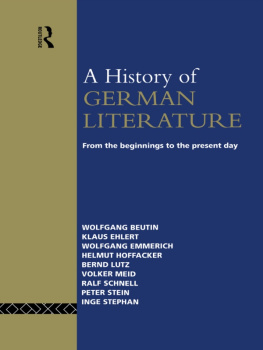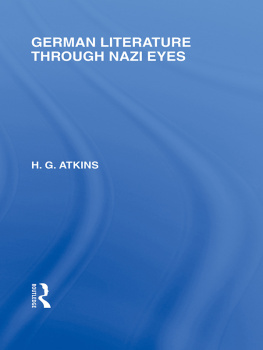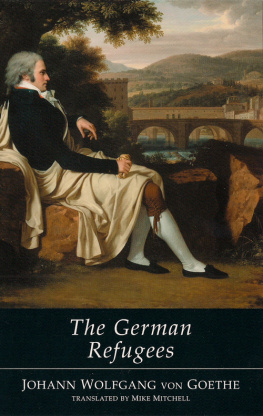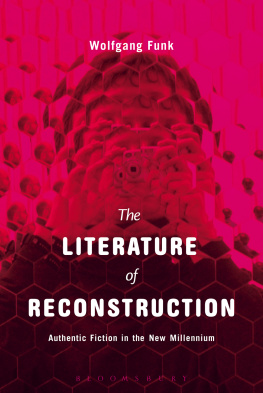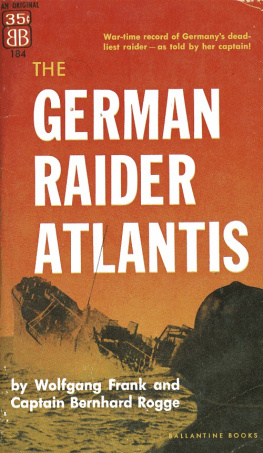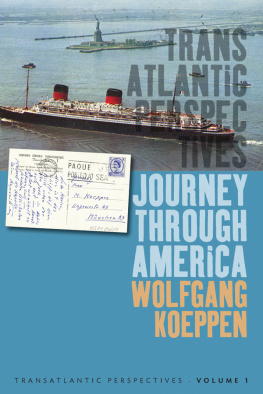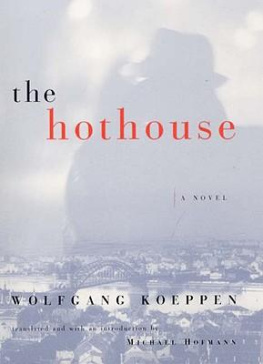Beutin Wolfgang - A History of German Literature
Here you can read online Beutin Wolfgang - A History of German Literature full text of the book (entire story) in english for free. Download pdf and epub, get meaning, cover and reviews about this ebook. year: 2011, publisher: Routledge, genre: Religion. Description of the work, (preface) as well as reviews are available. Best literature library LitArk.com created for fans of good reading and offers a wide selection of genres:
Romance novel
Science fiction
Adventure
Detective
Science
History
Home and family
Prose
Art
Politics
Computer
Non-fiction
Religion
Business
Children
Humor
Choose a favorite category and find really read worthwhile books. Enjoy immersion in the world of imagination, feel the emotions of the characters or learn something new for yourself, make an fascinating discovery.
- Book:A History of German Literature
- Author:
- Publisher:Routledge
- Genre:
- Year:2011
- Rating:4 / 5
- Favourites:Add to favourites
- Your mark:
- 80
- 1
- 2
- 3
- 4
- 5
A History of German Literature: summary, description and annotation
We offer to read an annotation, description, summary or preface (depends on what the author of the book "A History of German Literature" wrote himself). If you haven't found the necessary information about the book — write in the comments, we will try to find it.
A History of German Literature — read online for free the complete book (whole text) full work
Below is the text of the book, divided by pages. System saving the place of the last page read, allows you to conveniently read the book "A History of German Literature" online for free, without having to search again every time where you left off. Put a bookmark, and you can go to the page where you finished reading at any time.
Font size:
Interval:
Bookmark:

Translated by Clare Krojzl

London and New York
English translation first published 1993 by Routledge 11 New Fetter Lane, London EC4P 4EE
Simultaneously published in the USA and Canada by Routledge 29 West 35th Street, New York, NY 10001
First published in German by J.B.Metzlersche Verlagsbuchhandlung in 1989
This edition published in the Taylor & Francis e-Library, 2005.
To purchase your own copy of this or any of Taylor & Francis or Routledges collection of thousands of eBooks please go to http://www.ebookstore.tandf.co.uk/.
1989 J.B.Metzlersche Verlagsbuchhandlung
Translation 1993 Routledge
The authors of individual sections of the book are as follows: pp. 60105 by Wolfgang Beutin; pp. 32482 and 40625 by Klaus Ehlert; pp. 573660 and 7619 by Wolfgang Emmerich; pp. 383 405 and 42536 by Helmut Hoffacker; pp. 159 by Bernd Lutz; pp. 10655 by Volker Meid; pp. 53572 and 661760 by Ralf Schnell; pp. 248323 by Peter Stein; pp. 15693 and 436503 by Inge Stephan.
All rights reserved. No part of this book may be reprinted or reproduced or utilized in any form or by any electronic, mechanical, or other means, now known or hereafter invented, including photocopying and recording, or in any information storage or retrieval system, without permission in writing from the publishers.
British Library Cataloguing in Publication Data A catalogue record for this book is available from the British Library
Library of Congress Cataloging in Publication Data Deutsche Literaturgeschichte. English A history of German literature: from the beginnings to the present day/Wolfgang Beutin[et al.]. Fourth edn p. cm. Includes bibliographical references and index. 1. German literatureHistory and criticism. I. Beutin, Wolfgang. II. Title. PT85.D369 1993 830.9dc20 933381
ISBN 0-203-99322-5 Master e-book ISBN
ISBN 0-415-06034-6 (Print Edition)
When this book first appeared in 1979, the study of the history of literature was still under the sway of a type of account that had become prevalent in the 1950s under the banner of post-1945 ideological freedom. This had in turn developed out of an intellectual historical approach to German literary developments that had been the norm since Wilhelm Dilthey. The impact on German education of the authors and their generation, and the scholarly shortcomings of this fruitless approach, have been immense. This is attested by the sheer length of time it took for any discussion at all to arise on reasons for elaborating a new way of looking at the whole history of literature. Such a discussion did not even begin to manifest itself until the mid-1970s. The importance of social history as a dimension of literature, now a major area within the discipline besides that of aesthetic values, has since been accorded its rightful place among the subject matter proper to the discipline. The new awareness that has been brought to bear on this History of German Literature over the last decade is regarded by the authors as confirmation of their intention to make a complete break with customary guidelines for the presentation, classification and selection of material, and to bring this newly acquired self-perception of literary study into the clear light of day.
It would be appropriate at this point to restate the two basic principles that have emerged from discussion as the authors shared view of the overall conception and formal structure appropriate to this book. First, a socio-historical basis for the study of literature does not mean embedding it in political, social or ideological processes. What it definitely does mean, however, is interpreting the artistic autonomy of literary creation against this background, so as to be able to describe how literature both reconciles itself with and protests against human relations. The conceptual marriage of literary and social change enables us to uncover the equally fundamental and productive contradiction between aesthetic illusion and social reality, and to conceptualise literature in terms of the dynamic of this contradiction as an organon of history (Walter Benjamin), even in cases where it is ultimately subordinate to it. Second, it seemed only right to allow literature its own voice as a storehouse of historical experience, relating it to the contemporary situation, rather than treating it as a dead historical document that is over and done with. It needs to be borne in mind, however, that knowledge is not lodged in literary works in the form of some fixed truth, concrete substance or statement of meaning, but can only be derived from them through the mediation of the reader, becoming meaningful in terms of his or her own experiences in the present.
The following guidelines consequently emerged for this account of the history of literature: a chronological approach, which nevertheless attaches varying weight to different periods, laying special stress on the concerns of the twentieth century, particularly the literature of both parts of Germany since 1945. The classification of periods has been made on the basis of upheavals in political history, taking into account the non-simultaneous relationship between material and creative productivity. Each section dealing with a different age begins by enumerating and pinpointing issues in the historical dimension of literature, elaborating the key issues and using them as examples with which to interpret the literary historical process. Writers and works are therefore selected on a functional basis, dispensing with the practice of a complete enumeration of authors and works and giving precedence instead to those that are in some way exemplary. Failure to mention an author or work should by no means be taken as a negative value judgement.
Like the second edition, the third has also been substantially revised and expanded. This concerns in the first instance the outward form of the book. The earlier formata mixture of continuous narrative interspersed with original quotations and informative textsseemed outdated. All chapters have been expanded and revised in terms of content and style, although the scope of this Preface precludes a detailed list of alterations. The most recent scholarly developments and research results have been taken into account.
September 1989
A survey of medieval German literature poses more problems than that of later ages. This is not least because of the time-span involvedseveral centuries from the earliest documents, dating from the middle of the eighth century, to the final echoes of the age in the fifteenth centurya span comparable with the period from early humanist literature until the advent of the modern age. The legacy of extant medieval literary material is particularly scant and random in character, precluding any accurate assessment of the scope and nature of what is now lost to historians forever. The scope and nature of German and other national literatures dating from the fifteenth century onwards is wellknown to us by virtue of the greater number of copies and the chances of literature being preserved that accompanied the invention of printing. The drawback with literature of the early period
Font size:
Interval:
Bookmark:
Similar books «A History of German Literature»
Look at similar books to A History of German Literature. We have selected literature similar in name and meaning in the hope of providing readers with more options to find new, interesting, not yet read works.
Discussion, reviews of the book A History of German Literature and just readers' own opinions. Leave your comments, write what you think about the work, its meaning or the main characters. Specify what exactly you liked and what you didn't like, and why you think so.

